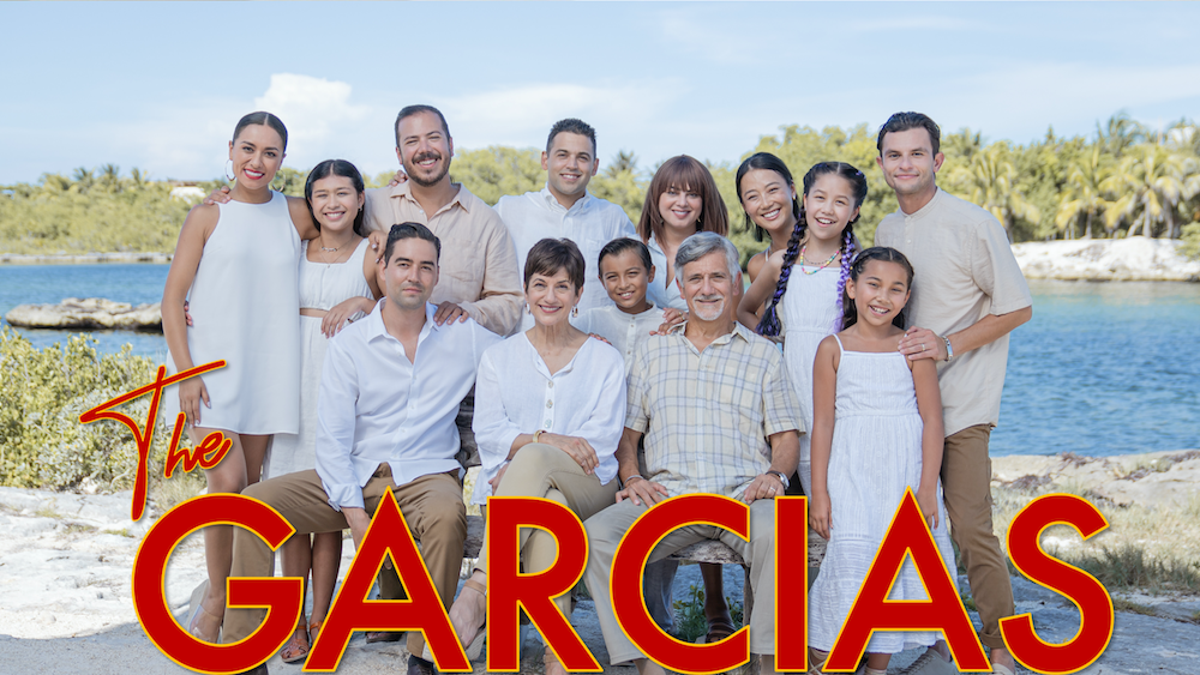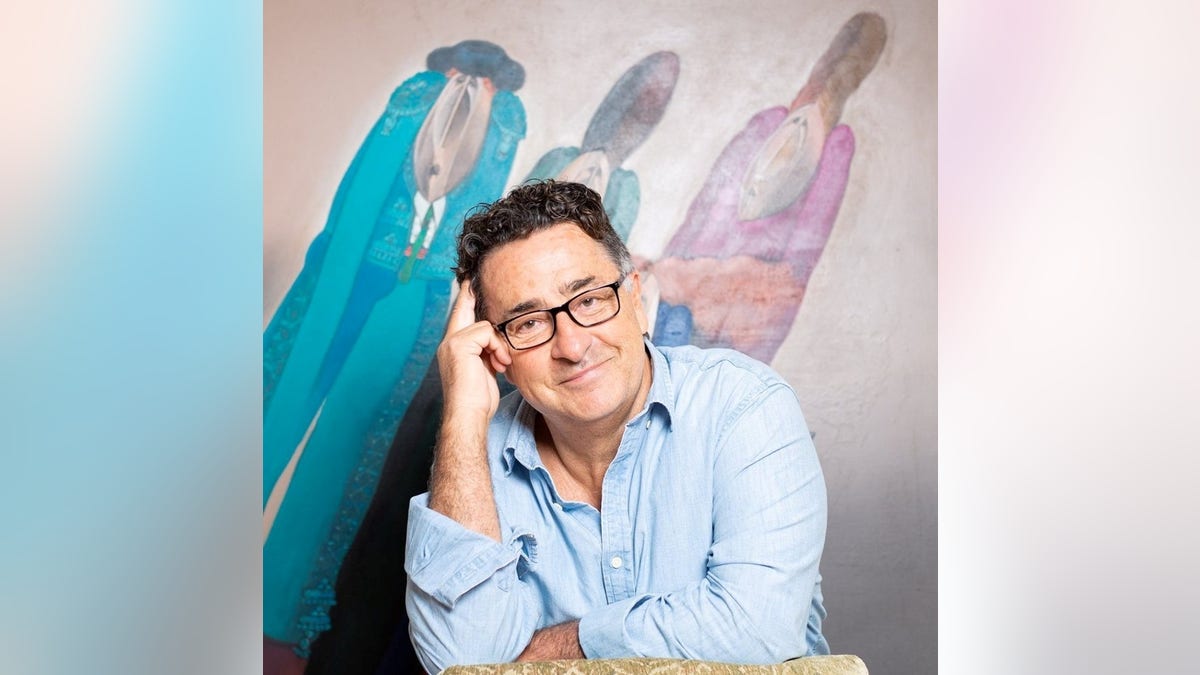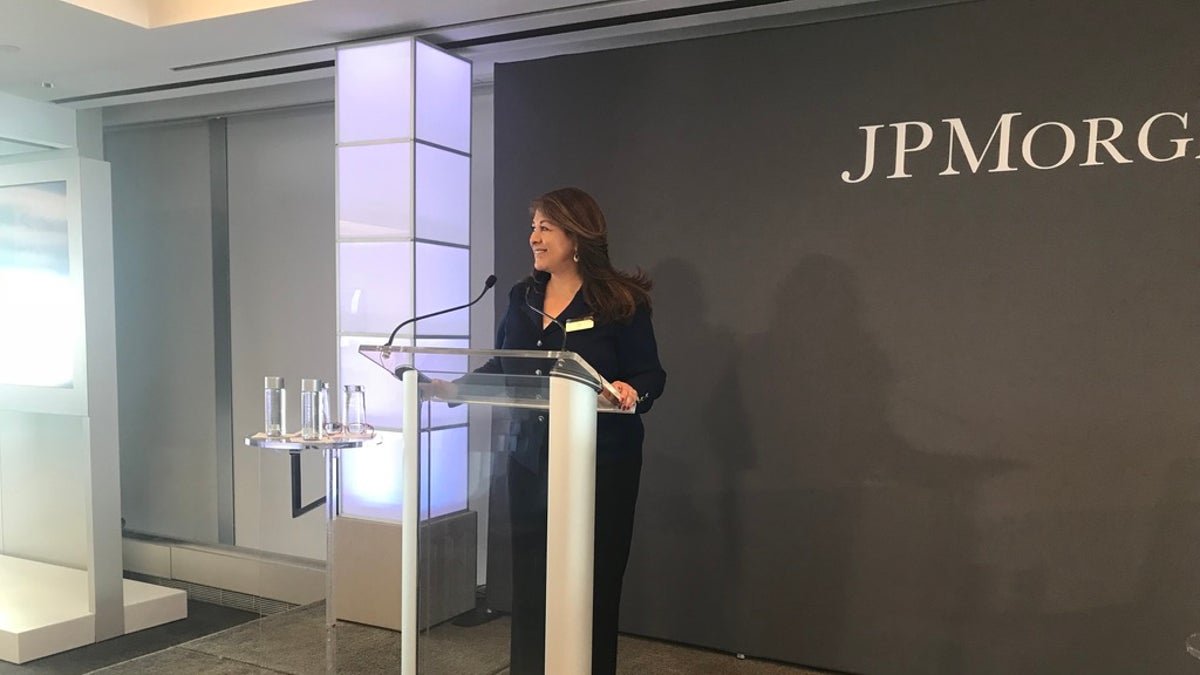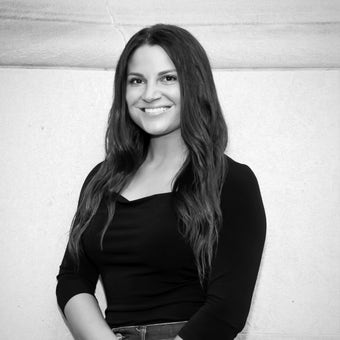Why did many Hispanic voters leave the Democratic Party?
‘Lexit’ founder Jesse Holguin provides insight on why Hispanic voters are shifting towards the GOP on ‘Fox News @ Night.’
For decades, there's been a disproportionate representation of Latinos in Hollywood; for the last few years especially, the percentage has actually trended downward.
Despite comprising nearly 20% of the U.S. population and almost a third of today's American youth, making them the second-largest consumer audience in the country, Latinos aren't finding themselves in front of - nor behind - the camera at nearly the same rates.
But as the nation pivots toward prioritizing diversity, equity, and inclusion (DEI) initiatives, why aren't Hispanics being included in the conversation?
According to the Latino Donor Collaborative (LDC), Latinos make up only 2.6% of on-screen talent in Hollywood. Even lower is the percentage of Latinos behind the scenes, as they comprise only 1.5% of film directors and 1.4% of television show-runners.
The study, which Axios shared in a recent publication calling out the media for its lack of Latino representation, found that Discovery, HGTV, TLC, and HBO - all owned by Warner Bros Discovery - had zero Latino leads across their immensely vast library of shows in 2022. Netflix had just two Latino leads across all of its 124 shows, and Apple TV+ had only one across its 44 shows.
But, according to the same report, the U.S. Latino cohort is generating $2.8 trillion in GDP, making it the fifth-largest economy in the world, having recently surpassed the economies of France, the U.K. and India.
So Latinos are, understandably, left wondering why Hollywood is leaving so much money on the table.
"The Latino market, if you were tapping it right, you would grow your top line in Hollywood," said TV show-runner Jeff Valdez, who co-created The Brothers Garcia - which had a four-year run on Nickelodeon in 2000, having been billed as the first English-language sitcom to have an all Latino cast and creative team. Jeff subsequently created its spinoff, The Garcias, which saw its HBO Max debut in 2022.

Promotional image for NCP's 'The Garcia's,' which ran on HBO Max for only 1 season prior to being canceled last year. (RLM PR)
"We don't have anything we can watch for our kids. It's either too adult or it's cartoonish," Jeff said of his motivation behind his shows. "I just think there's just enormous white space to make content for families to hang together. If we don't give them something where they can coalesce around, it makes it more difficult."
Though the streaming service canceled the show after only one season, according to Nielsen, The Garcias had the highest percentage of Latino viewers among all Latino-oriented half-hour comedy shows on any streaming service, garnering a 65% Latino audience base.
Having served as the #8 most in-demand comedy series made for HBO Max, according to Parrot Analytics, one might ask: why was it so short-lived?
Per representatives for HBO and HBO Max, who responded to Fox News Digital's request for comment, the reason is simply that live-action kids & family programming is not part of their content strategy for the immediate future.
"Unfortunately that is the true reason for the cancelation," the statement read, which also mentioned it does not confirm Parrot Analytics' stats regarding The Garcias' performance, clarifying that it does not report data directly to the vendor.
But Latinos speculate something else may be behind Hollywood's decision-making, calling their lack of representation "criminal."
"Imagine that you invest in a company and your CEO is completely ignoring 20% of your customers." - Ana Valdez, CEO of the Latino Donor Collaborative
"The gap between the level of representation and the level of participation that we [Latinos] have in sales, subscriptions, box office, etc… is just crazy. It's really almost an emergency; it's almost criminal in so many ways," said Ana Valdez, CEO of the LDC. "It just absolutely makes no sense."
"Commercially, imagine that you invest in a company and your CEO is completely ignoring 20% of your customers," she added, later citing a recent Nielsen report that touched on Hispanic consumer loyalty.
"What we found was that Latinos watch content if they see themselves reflected in their stories, their faces, you know, their people… And when they come to these platforms and see themselves, they not only sign up, but they binge, and they stay."
Ana told Fox News Digital that Latino content creators have resultantly landed on TikTok and YouTube, social media channels where there are "no gatekeepers."
"Latinos are going to those other channels that are much more democratic, where there are no gatekeepers and where these people can create their content, see their content and show it to their community… And of course, that community shows up."
"We don't have the data, but, informally, of TikTok's growth percentage, 60% comes from Latinos," she stated. Though that statistic may be informal, studies show that, of all the social media networks, TikTok had the largest share of unique Hispanic adult visitors.
"A lot of these [Latino] people have been here for generations, and they're patriots." - Jeff Valdez, New Cadence Productions
Jeff, who runs New Cadence Productions, which recently regained the rights to his Garcias entities and at which 92% of staff is Hispanic, told Fox News Digital that it doesn't help that the representation Latinos do have isn't all that accurate.
"Hollywood uses a yellow filter every time they shoot in Mexico… For 25 years, I've never seen anything but beautiful blue skies and wonderful people [there]. But, you know, in the press here, we would portray Mexico as this horrific place. And then we portray Mexican-Americans as not American…"
"It doesn't help every night on all the news networks… the only conversation you hear around Latino, U.S. Latinos, is immigration… [but] a lot of these people have been here for generations, and they're patriots," he added.
But it isn't just content creators who are worried about representation; Latino consumers are also concerned.

New Cadence Productions' Jeff Valdez, who created both 'The Brothers Garcia' and its HBO Max spinoff, 'The Garcias.' (RLM PR)
Natalie Canas, a digital marketing strategist of Ecuadorian descent, told Fox News Digital she believes the primary reason for the lack of diversity in Hollywood actually stems from a lack of diversity among the roles themselves:
"The Latino community is still stereotyped to only play certain cliché roles. Some movies or shows will use them for comedic effect as passionate, hot-tempered, spicy, and sometimes sultry characters," she said. "And the stereotype limits their representation in Hollywood."
Canas argued that, while she's seen her share of "raw works that truly capture the authenticity of the community," more work needs to be done in breaking down the stereotypes of Latinos in association with "criminality, poverty, laziness, and a lack of intelligence" for younger generations to see.
"[This way], they can take pride in their culture and identity," she explained.
"It upsets me that we don’t often, if ever, have mainstream horror movies or romance films that display minorities in simple or common environments." - Christian Ortiz, William Paterson University
Christian Ortiz, a Puerto Rican and Dominican honors student at William Paterson University in New Jersey, expressed a similar sentiment, telling Fox News Digital that the stereotypes "are apparent" in Hollywood’s representation of Latino families.
"Most mainstream movies with Hispanic… actors, are movies based on the heritage," Ortiz said. "It upsets me that we don’t often, if ever, have mainstream horror movies or romance films that display minorities in simple or common environments," he added, positing that politics may play a role in the discrepancy.
HISPANICS CONTROL ELECTORAL FUTURE: HERE'S THE TOP TAKEAWAY FROM 2022 MIDTERMS
"I believe the left likes to advocate for Hispanics and the rights of illegal immigrants in many ways that have helped Hispanics. I would say it’s possible that Hollywood and the left expect more support from us as a whole, because of this," Ortiz explained, adding that Hispanics' business drive and pride in their work are, he believes, "more respected" by the Republican Party - suggesting that a recent shift among Latino voters that could be creating ripple effects.
In recent months, several outlets - including The New York Times, The Washington Post, NPR and Politico, have published articles announcing a noticeable departure among Hispanics from the Democratic Party. So is it possible Hollywood is penalizing Hispanics at large for a new faction of political converts? Is it a coincidence that only 1.3% of Latinos directed TV series in 2022, compared to 3.7% in 2020, around the time that the U.S. immigration crisis began dominating headlines?
One El Salvadorian video editor who wished to remain anonymous told Fox News Digital why the discrepancy doesn't surprise her.
"Jobs, whether on screen or behind the scenes, can seem very unattainable - especially if you don’t have knowledge of the inner workings of the industry. You first have to know a job, such as, a producer or video editor exists to even begin to dream about being one. That knowledge isn’t readily available. Plus, since film can be seen as an artistic job, it is deemed a little more risky and a lot of people need stability, so going into an industry you might not know too much about is just too big of a risk," she said.
"People in Hollywood don’t know us," she added. "Nobody in charge is going to put our communities as a priority for representation."
She argued, however, that "everything is political."
"I don’t know whether there is a definite political plan to ‘penalize’ Latinos, but art is informed by our surroundings, so I can’t completely say that creators aren’t being affected by these points of views and including these ideas into their work."

CEO of the Latino Donor Collaborative, Ana Valdez, at the podium. (RLM PR)
While Ana Valdez didn't seem certain that Hollywood's treatment of Latinos is political, she was sure it's personal.
"We created a database of 3,500 already experienced actors, directors and writers. So there is absolutely no other logic that this isn't personal," she told Fox News Digital.
"The industry seems to have an aversion for this minority community because there is no reason… According to a report that Nielsen released last year, Latinos are the only community that continues lagging behind at this point," she added.
In fact, a Black man in Hollywood may have been the first to point this out.
In a 2014 op-ed he penned for The Hollywood Reporter, famed actor-comedian Chris Rock wrote, "Forget whether Hollywood is black enough. A better question is: Is Hollywood Mexican enough? You’re in L.A, you’ve got to try not to hire Mexicans. It’s the most liberal town in the world, and there’s a part of it that’s kind of racist…"
Ana, a Mexican-born resident of Los Angeles, couldn't agree more - pointedly underscoring the absence of opportunity the Latino community is facing as a result.
"With that limit, that 2.6% of roles, you are not giving the Latino community a learning curve," Ana argued. "[Hollywood gets] these incredible actors when they're already seasoned… like, you know, Pedro Pascal, and all these people that are that have already tried everything and that are already very, very, very experienced. But they have four Whites and four African-Americans. [They'll have] the learning curve of people that may do two or three or four shows that don't work out perfectly. But that allows them to become experts [to find] the typical role that they want to experience. But who's going to give you [Latinos] the experience?"
MALCOLM-JAMAL WARNER, BLACK STARS SHARE HOLLYWOOD EXPERIENCE IN NEW DOCU-SERIES FROM FOX
As the Latino community continues to combat a growing discrepancy in Hollywood, other racial minorities - like African-Americans - seem to be successfully closing the gap in recent years: while studies show Black people make up approximately 13.5% of the American population, their percentage of leading roles in Hollywood has grown to 12.9%. And while their behind-the-scenes talent only rings in at around 6%, that number is four times the size of Latino writers.
So what do Latinos wish to see? Well, more of themselves, to start — but Jeff Valdez argues this is about more than just increasing the numbers.
"We are just people. People are just people," Jeff, who strives to enlist Hispanic-exclusive talent on his projects, told Fox News Digital. "The thing that drove me more than anything probably in my career was when we first did the pilot for The Brothers Garcia, we did a focus group with a real broad group of Latinos and, you know, a broader audience of Black, Latino, Asian, White…"
"A young girl, probably 12 years old, blurts out, and I quote, 'Thank God there's finally a show that confirms my sense of normalcy.' A 12-year-old said that," he pointedly remarked.
Ortiz agreed, telling Fox News Digital that he doesn't take issue with the current Latino representation as long as "it does our cultural representation justice and is in good taste," adding that it would be nice to see Latino directors on more projects.
"I do hope to see films tell stories where Latinos can star or appear in the film, but aren’t so heavily anchored to the purpose of heritage or stereotypes."
"We are just people…people are just people," - Jeff Valdez, New Cadence Productions
Others, like the El Salvadorian video editor, aren't convinced the current climate will allow for true representation - stressing that Latino is not a one-size-fits-all culture.
"There's no way one character is going to describe us all," she told Fox News Digital. "Latinos in the States are not a monolith. The global south is not a monolith. The differences between groups of people from the same country are even massively different. Just because you or your family comes from Latin America, it doesn’t mean you speak Spanish. Some people don’t even identify as Latino… there is no simple term to describe us all because we’re all so different. You’re not gonna write in the perfect ‘Latino character,’ because it doesn’t exist. And the people currently in the writers' room are definitely not going to take the time to learn all these intricate differences."
WRITERS GUILD OF AMERICA TO STRIKE FOR FIRST TIME IN 15 YEARS AFTER FAILED NEGOTIATIONS WITH STUDIO
Television and movie writers with the Writers Guild of America declared late Monday that they will launch a strike for the first time in 15 years. The members have argued the current streaming era brought additional work opportunities and record profits, but their pay has lagged behind and subsequent negotiations to rectify this difference have failed.
"The decision was made following six weeks of negotiating with Netflix, Amazon, Apple, Disney, Warner Bros Discovery, NBC Universal, Paramount+ and Sony under the umbrella of the AMPTP" [Alliance of Motion Picture and Television Producers], the Writers Guild of America West said in a series of tweets.
As the fight inside Hollywood for both equality and equity alike marks another potential shift in the landscape, one can't help but wonder if and when, like the union writers, Latinos and other under-represented groups will be handed the pen, the clapboard, and, especially, the mic.
HBO representatives told Fox News Digital they're being prioritized, revealing that the streaming service's short-term strategy includes handing the power to Latino creatives:
"Pedro Pascal is the lead of our biggest series on HBO," a representative said, referring to The Last of Us, which first aired in January of this year. "And we have Latino show-runners on three other huge upcoming series: True Detective: Night Country, Welcome to Derry, and The Penguin."
CLICK HERE FOR THE FOX NEWS APP
FOX Business' Lawrence Richard contributed to this report.






